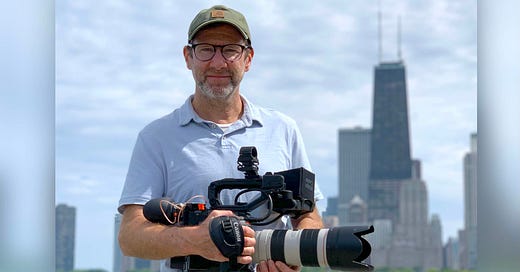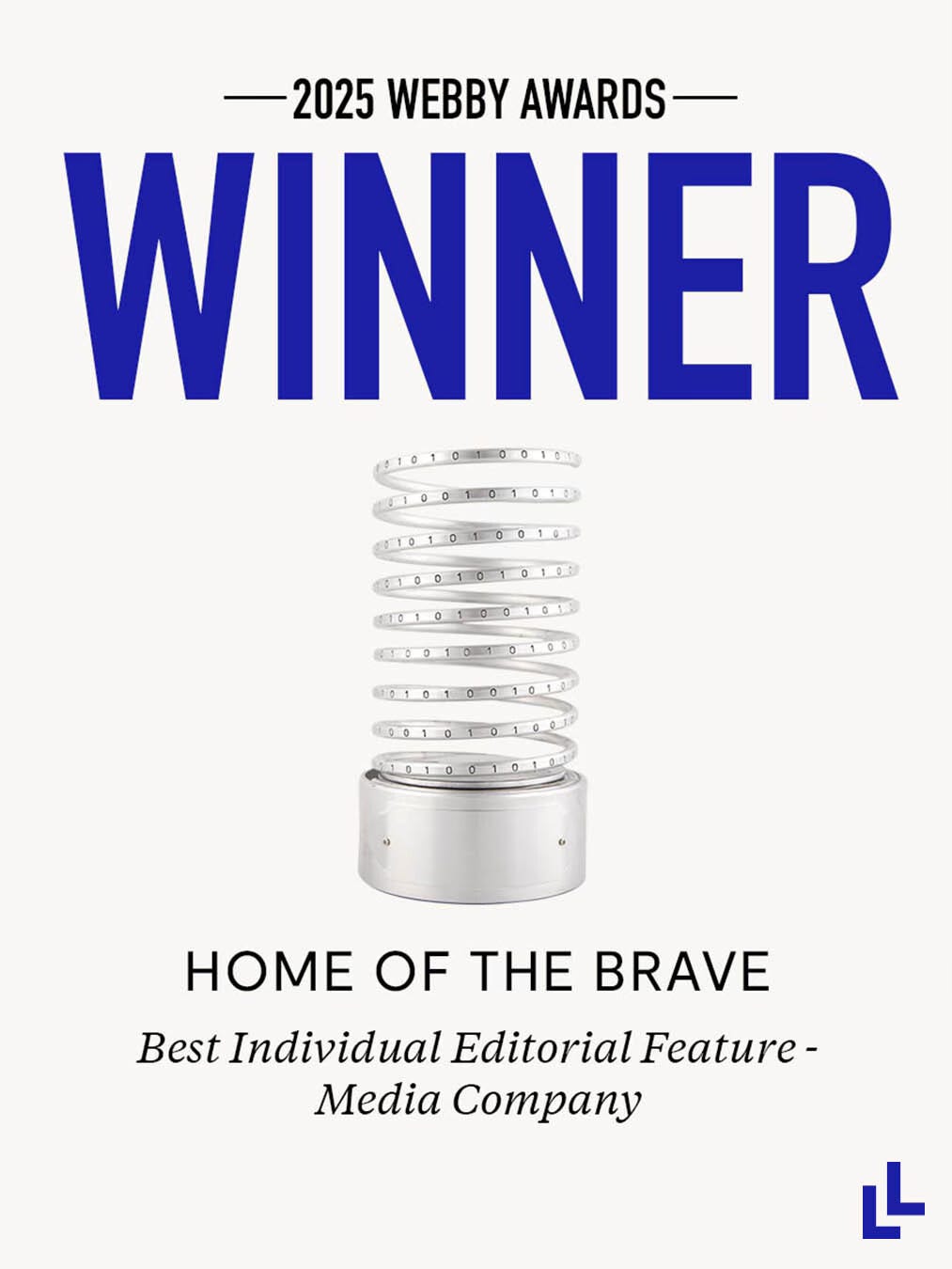“We shoot like it’s a documentary.” Cian O’Clery on making a dating reality show featuring an autistic cast
The hugely popular Netflix series “Love on the Spectrum” blurs the boundaries of reality TV and journalistic storytelling.
Cian O’Clery knows why his current cinematic project has become one of the hottest shows on Netflix. Despite being a reality series, “Love on the Spectrum” bucks the trend of over-the-top scenes and scripted dramatization, opting instead to authentically capture the lives of several dozen neurodivergent individuals seeking meaningful relationships. On the show many of them experience the first romantic date of their lives. O’Clery has described the production as “a character-led documentary series disguised as a dating show.” The series boasts a 100% rating on Rotten Tomatoes and five Emmy wins over two seasons.
O’Clery co-created and co-produces the show with Karina Holden. The duo got the idea for “Love on the Spectrum” after working on the 2018 Australian series “Employable Me” about people with various physical disabilities and neurodiverse conditions — such as OCD, Tourette's syndrome, and autism — trying to find work. They launched “Love on the Spectrum” in Australia in 2019 before Netflix picked it up for US subscribers in 2022. O’Clery, who also serves as the show’s director, points out that casting for the show involved interviewing hundreds of people affected by a neurological and developmental condition that can impact behavior, socializing, and speech.
By recent estimates, about 3% of children born in the United States have autism (4 in 100 boys, 1 in 100 girls), while around the world about 1% of children are diagnosed. Among American adults, 2% have autism.
Nearly 40 years ago, the movie “Rain Man” introduced many Americans to autism through Dustin Hoffman’s Oscar-winning performance as an autistic savant. Other popular stories, including Mark Haddon’s best-selling 2003 novel The Curious Incident of the Dog in the Night-Time is similarly narrated by an autistic savant. But most autistic people don’t fit that mold, and over recent decades, pop culture has been slowly embracing the diversity of people on the autistic spectrum, due in large part to autistic individuals who are reclaiming their own narratives.
“Love on the Spectrum,” does not portray marginalized characters with unrelatable experiences. Rather, the show has become a powerful tool in continuing to shift public perception of autism by humanizing real people on the spectrum, challenging stereotypes, normalizing neurodiversity, offering representation and empathy, and opening more conversations. The show repeatedly offers the audience intimate, fragile moments with remarkably affecting emotional stakes.
Ken Kesey’s 1962 fiction novel One Flew Over the Cuckoo’s Nest is largely credited for kickstarting mental health reforms including the Community Mental Health Act of 1963. The book triggered a societal change that years of academic papers or journalistic records had failed to achieve. In the same way, “Love on the Spectrum” feels like it has the power to accelerate Americans’ shifting attitudes and understanding of autism. Would a journalistic piece or a documentary hold the same cultural impact as a reality dating series on Netflix?
In this edition of Depth Perception — coinciding with Autism Awareness Month — we talked with O’Clery about the journalistic aspects of the show, raising awareness about autism, and how the production manages to keep the scenes authentic. This interview has been edited and condensed for clarity. —Brin-Jonathan Butler
I’ve wondered whether a journalist could illuminate the issues you touched on and reach anywhere near as many people as effectively and powerfully as you have. Did you approach this series as reality TV entertainment or something more journalistic like a documentary?
I’m not sure how you define what’s journalism or documentary. We treated the series as [a] documentary. We tell stories. It’s all about getting to know people on a deep level. Getting to know them as humans, as different personalities going through life. What are their hopes? What are their dreams? Understanding who they are in a deep way and doing so probably in a way that you wouldn’t in other dating shows out there. It’s being able to introduce quite a large audience to all these great people and fall in love with them and realize and understand a lot more about autism. Hopefully a lot of misconceptions and prejudgements just go out the window when people are introduced to the people. So I don’t know. I think it’s both. We never really expected to be such a success.
I’ve been groomed to believe that reality TV needs an element of competition. Find a person to marry without having seen them. Vote people off an island. Win some kind of riches at the end. But your cast — and the families that support them — are concerned with finding love and intimacy and human contact. Your series has an uncanny ability to provide massive stakes in deeply quiet, personal, tender moments. How did you come by this approach?
I guess what I’m good at is finding amazing people and finding a way to tell their stories in a way that just feels really genuine. Back in the day, in my early days, I worked on “Married at First Sight” in Australia. There were all these shows back then trying to get drama and trying to get conflict. Trying to make the stories that are playing out on screen. And the producers had to really steer quite a lot and produce quite a lot to get that [drama]. Nowadays, [cast members] know if they fall in love or if they fight or if they’re over the top, that’s when they’re going to get the airtime.
Of course we’re trying to do something very different. We do want to tell truthful and honest stories. One of the ways we do this is by having a really small crew. This way we don’t turn people’s homes into a film set. The very last thing I would want is to have a clapperboard in front of the camera and say, “Roll camera!” or “Action!” I want the opposite of that. We’re always trying our best to melt into the background and just become part of the furniture. Because we’re so low-key and because we’re so low profile, people don’t necessarily feel like they’re on or performing. We just do a lot of things very much like the documentary space. We shoot everything like it’s a documentary. We do pre-production, casting, and really everything like it’s a documentary.
It’s official: Long Lead is among the web’s “best” — again
Yesterday the Webby Awards jury awarded Long Lead a Webby for “Best Individual Editorial Feature” for Home of the Brave. We are humbled by this incredible honor!
It's a bittersweet win, because this multi-part, multimedia feature is about veterans' fight for housing at the West LA VA campus. Every night, thousands of vets sleep on the streets of LA, "the homeless veteran capital of America." Learn more about their fight for housing at homeofthebrave.longlead.com.
On “Survivor” right now, a member of the cast named Eva Erickson revealed on the show that she is on the spectrum. It moved her and many others to tears. She had gone through a lot of torment in her life. A lot of your cast has talked about the bullying they went through or struggles they endured from society. How did you approach this kind of delicate material?
We treat every person and each individual and their story in whatever way feels right for them. Connor, for example, in season two was with Emily, and just going to hold her hand was a huge thing. The way it was cut and the way that we shot it felt really like a big moment.
We live in a world where people are having sex all the time on hidden cameras and, you know, it just feels like nothing. It’s nice to be able to tell stories of things that are small but really meaningful to the people who are experiencing them. A lot of the stories we’re telling are about people new to dating. We as a team and as a production can help people launch themselves into that [dating] world and help to find people for them to date and also to offer support if they want it.
Jennifer Cook is a therapist on the show who speaks about being on the spectrum herself.
She is on the spectrum herself but, having said that, that’s not why she’s on the show. She’s on the show because she’s good at her job.
It’s important to say that there’s plenty of people on the spectrum who don’t need support when it comes to dating. They’re having very rich, fulfilling dating lives day-to-day. But the people that we are following and the stories we’re telling often are about people who do want some support, who do want some help. And we do find those people going through a lot of “firsts” in the series. And it’s lovely when things work out and after seeing these people taking these steps and following them to a different place. You can see with season 3 just how much some people have developed and changed. And there’s a lot of frustration, too. People do change. People do develop before our eyes. It’s great.
“The very last thing I would want is to have a clapperboard in front of the camera and say, ‘Roll camera!’ or ‘Action!’ I want the opposite of that.” —Cian O’Clery
The depiction of autism with “Rain Man” in 1988 was almost monolithic at that time. But across five seasons with the Australian and American versions of the show, I've been introduced to the nuances of perhaps 50 or 60 neurodivergent people? 70? Where else have I met five on any program or series?
I don’t know how many people off hand. But it’s a lot. It’s definitely more than any other form of media that’s been out there in a big way. And what’s so great about the ability for us to keep making this show is to just keep showing the diversity. “Rain Man” was, for a long time, what people [who didn’t personally know an autistic individual] thought autism was. There was a real lack of understanding about what autism was and what it meant.
The initial idea and the construct of the show was that these are people on the spectrum who are dating. But the point also of the show is that once you start watching, it’s not a person on the spectrum. It’s Connor, It’s Pari. It’s Madison. It’s James. They’re all just so different and so interesting in their own right and in their own lives and stories. You’re trying to have autism not be a label and to be instead understood as a diverse spectrum where really there’s all sorts of people.
Further watching from Cian O’Clery
“Employable Me Australia” (The ABC, 2018-2019)
“Love on the Spectrum Australia” (Netflix, 2018-2019)
“Love on the Spectrum” (Netflix, 2022-2025)
“The Later Daters” (Netflix, 2024)








